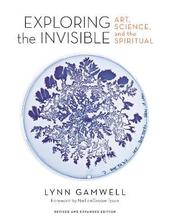
|
Exploring the Invisible: Art, Science, and the Spiritual - Revised and Expanded Edition
Hardback
Main Details
Description
How science changed the way artists understand reality Exploring the Invisible shows how modern art expresses the first secular, scientific worldview in human history. Now fully revised and expanded, this richly illustrated book describes two hundred years of scientific discoveries that inspired French Impressionist painters and Art Nouveau architects, as well as Surrealists in Europe, Latin America, and Japan. Lynn Gamwell describes how the microscope and telescope expanded the artist's vision into realms unseen by the naked eye. In the nineteenth century, a strange and exciting world came into focus, one of microorganisms in a drop of water and spiral nebulas in the night sky. The world is also filled with forces that are truly unobservable, known only indirectly by their effects-radio waves, X-rays, and sound-waves. Gamwell shows how artists developed the pivotal style of modernism-abstract, non-objective art-to symbolise these unseen worlds. Starting in Germany with Romanticism and ending with international contemporary art, she traces the development of the visual arts as an expression of the scientific worldview in which humankind is part of a natural web of dynamic forces without predetermined purpose or meaning. Gamwell reveals how artists give nature meaning by portraying it as mysterious, dangerous, or beautiful. With a foreword by Neil deGrasse Tyson and a wealth of stunning images, this expanded edition of Exploring the Invisible draws on the latest scholarship to provide a global perspective on the scientists and artists who explore life on Earth, human consciousness, and the space-time universe.
Author Biography
Lynn Gamwell is a lecturer in the history of art, science, and mathematics at the School of Visual Arts in New York. She is the author of Mathematics and Art: A Cultural History (Princeton). Neil deGrasse Tyson is director of the Hayden Planetarium at the American Museum of Natural History and the host of the Emmy Award-winning documentary Cosmos: A Spacetime Odyssey.
|